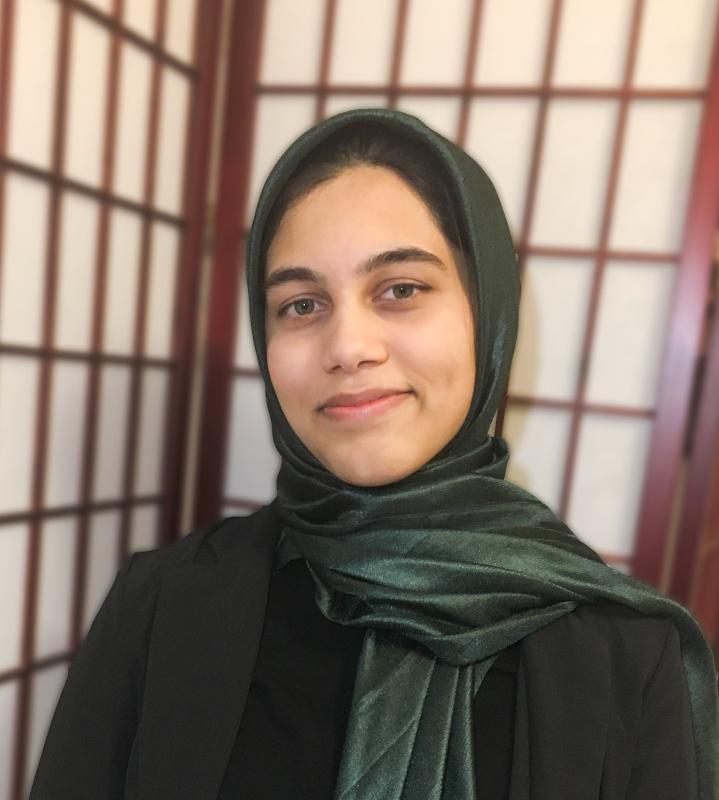
This year, as a co-director of Sponsorship for Technica, I had the rewarding experience of working with driven & talented people passionate about gender equality in tech.
1. Please tell us about yourself
Hi! I’m a senior Electrical Engineering student, minoring in Technology Entrepreneurship, and pursuing a certificate in Machine Learning. In addition to my engineering education and interests in solar energy, electric vehicles, and AR, I have been fortunate to be a part of sociotechnical and entrepreneurial activities on campus! I am the co-Director of Sponsorship for Technica, the world’s largest all-women and non-binary hackathon. I’ve also been an Engineering Ethics TA, developing a module on AI ethics and Algorithmic bias, and a TI peer mentor in the ECE department. Additionally, I am part of the Hinman CEOs program, the nation’s first living and learning entrepreneurship program, and the Ladies First Founders programs, engaging in tech entrepreneurship.
Some of my hobbies include traveling, laser engraving, and experimenting with food - which I’ve taken full advantage of during the quarantine.
2. Please tell us about Technica this year. How was the virtual format? What was your experience like? What challenges did you face?
This year, as a co-director of Sponsorship for Technica, I had the rewarding experience of working with driven & talented people passionate about gender equality in tech. While this hackathon season was like no other, the team welcomed 1868 hackers from 6 continents, maintaining our record as the world’s largest all-women & non-binary hackathon. Technica is not just a hackathon, but a community of people who uplift each other and stand for diversity in tech. With 83 student organizers, many of whom never met each other as we started our 2021 organizing season virtually, it was the bonding activities like group workouts, variants of pictionary/trivia, memes, and grind nights that helped maintain our inclusive and dynamic culture.
Hiring freezes for sometime did challenge the Sponsorship team this year, as our 2020 sponsorship cycle started around when the world went into lockdown. However, after making changes to diversify our outreach channels and forming strategic partnerships, we were able to expand our reach and get 32 sponsors including top tech and Fortune 500 companies. I’m really grateful for the Clark School of Engineering and the ECE department’s generous support and sponsorship that makes Technica possible.
3. How has your education in the ECE Department helped you to succeed in leading Technica, and in other areas?
Starting from ENEE101 we engaged in an activity to analyze our neural signals and were exposed to computer vision as freshmen, and as I reached senior year, courses in Quantum Technology, ML, and other timely topics were developed. In addition to integrating cutting edge technology into the curriculum, the ECE department has an Ethics in Engineering class which I had the opportunity to take and TA for three semesters. With this broad outlook into technology, I have been able to see things through a more socio-technical and interdisciplinary view. When pitching Technica, or conducting user studies with sponsors for the virtual hackathon platform, being able to understand the technical, business, and societal lense of a company really helped in personalizing the approach.
4. What made you decide to join the Academy of Machine Learning Program?
While working on solar cells, I started to see how applying Machine Learning could transform the process to developing more efficient cells. Exploring more into ML, I gained interest in autonomous vehicles and personalized assistive systems in the healthcare industry where I am now researching for my senior project. If applied responsibly, ML can help solve many challenging problems - and I wanted to have this tool in my toolbox. The ECE Academy for Machine Learning gave me a structured program to hold me accountable to this goal, and has not only provided theory, but also ML projects, which I have enjoyed the most, under the guidance of renowned researchers in the field.
5. What are your favorite classes?
ENEE313 (Introduction to Device Physics) - As a freshman, who joined EE because of solar cell research, I was looking forward to learning the in depth theory behind device physics, and ENEE313 was just that and more. The professor’s articulate examples made the concepts easier to understand. Also, I enjoyed the project to simulate a P-N junction, which added much value to the theory and got me thinking more about the application of computational methods to materials and energy research.
ENEE489B (Introduction to Quantum Technology) as it took me from knowing little about how quantum computers work to reading research papers on the topic and conducting literature reviews on a topic that intrigued me.
6. What are your plans after graduation?
I aim to engage in entrepreneurial ventures and industry research and development in the areas intersecting machine learning, sustainable energy, and autonomous/electric vehicles. Right after graduation I will be working as a research software engineer and intend to join part time graduate School in Electrical Engineering and Computer Science.
Top